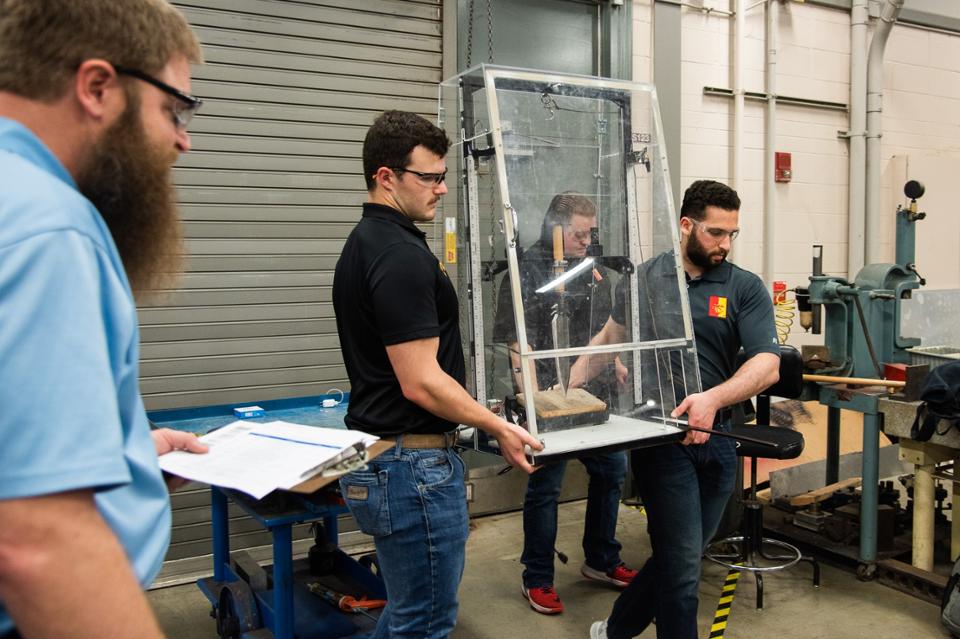Mechanical Engineering Technology - Manufacturing
Major in Mechanical Engineering Technology with an Emphasis in Manufacturing
Optimize production processes and design efficient tools.
Conceptualize, design, and prototype tools. Students learn how to integrate computer technology in manufacturing processes to cut, shape, and produce precision components from raw materials.
In a hands-on setting, practice molding processes and coremaking techniques, ensuring precise and defect-free metal components. Students collaboratively design projects, utilizing technology drawings and employing measuring tools, hand tools, and machine tools.
Unique classes in the Manufacturing emphasis track of the Mechanical Engineering Technology major:
- Kinematics: Calculate displacement, velocity, and acceleration of machine elements using graphics, mathematical, and computer-assisted methods.
- Tool Design: Develop effective and efficient tools with an emphasis on jigs and fixtures. Conceptualize ideas for modern manufacturing methods.
- Manufacturing Methods: Design technology drawings, then leverage measuring tools, hand tools, and machine tools to build projects.
- Metalcasting: Practice the processes involved in shaping metal objects. In a hands-on lab setting, engage in molding processes, coremaking techniques, and the production of precise and defect-free metal components.
- Computer-Aided Manufacturing: Explore the integration of computer technology in manufacturing processes. Learn manual programming, post-processing, and transferring data among CAD, CAM and CNC.
Mechanical Engineering Technology graduates with a focus on Manufacturing find jobs as:
- Manufacturing Engineers: Optimize manufacturing processes, from calculating machine element parameters to designing efficient tools and utilizing technology drawings for production.
- Tooling Specialists: Specialize in tool design with expertise in jigs and fixtures, conceptualizing and developing tools for modern manufacturing methods.
- Project Engineers: Design technology drawings and utilize measuring tools, hand tools, and machine tools to oversee and implement various projects in a manufacturing setting.
- Metalcasting Technicians: Specialize in the metal-casting process, which involves shaping metal objects by pouring molten metal into molds.
- CNC Programmers: Use computer software to generate code that guides the CNC machine in cutting, shaping, and producing precision components from raw materials.
- Manufacturing Technology Consultants: Advise and optimize production workflows for various manufacturing industries.
Professionals in manufacturing engineering find opportunities in diverse industries such as aerospace, automotive, electronics, construction, and general manufacturing. Graduates contribute to optimizing processes, designing tools, and advising on production workflows.
ABET Accredited
Feel confident you are receiving the most current training. The Mechanical Engineering Technology program is accredited by the ETAC Accreditation Commission of ABET, under the commission's General Criteria with no applicable program criteria. ABET (Engineering Technology Accreditation Commission).
Additional information
Mechanical Engineering Technology - Manufacturing Degree Map download
Catalog – see catalog for the School of Automotive and Engineering Technology